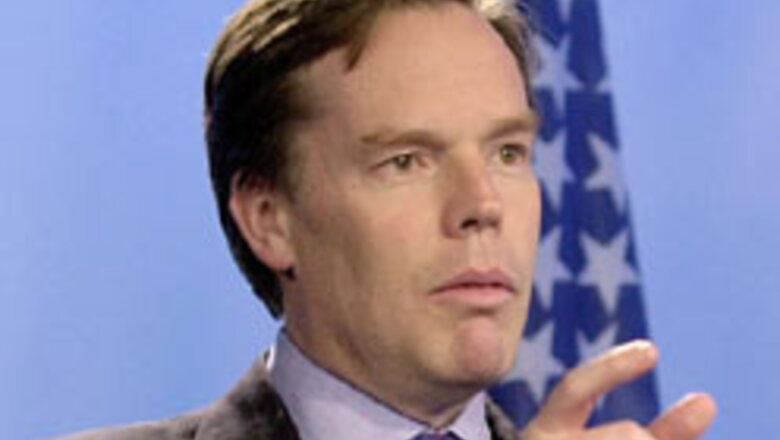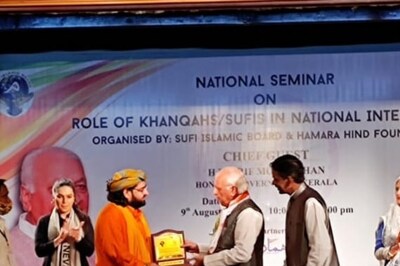
views
United Nations: Ambassadors from the world's major powers met Monday to discuss possible new sanctions against Iran for refusing to suspend uranium enrichment, but differences emerged and an agreement did not appear to be close, diplomats said.
The US, Britain and France would almost certainly favor tough new sanctions, but they know they will have to settle for less to ensure that Russia and China, which have close ties to Iran, will not use their veto power in the UN Security Council to block a new resolution.
Diplomats from the five permanent Security Council nations and Germany held three rounds of talks over the past week on strengthening sanctions against Iran following a report earlier this month by the UN's International Atomic Energy Agency that Iran was expanding enrichment instead of suspending it.
During a conference call on Saturday, the diplomats decided that Security Council ambassadors should take over the discussion of elements for a new resolution — and the ambassadors held their first meeting late Monday at Britain's U.N. Mission.
China's UN Ambassador Wang Guangya, asked afterward by reporters how the meeting went, said there are "some different views here, so we will continue to work."
He said the ambassadors would meet again on Tuesday afternoon and then consult with officials in their respective capitals.
Iran's refusal to freeze all its enrichment-related activities prompted the Security Council on December 23 to impose sanctions targeting the country's nuclear and missile programs and the individuals, companies and organisations involved in them.
The council gave Tehran 60 days to halt enrichment or face additional nonmilitary measures.
Iran insists its nuclear program is peaceful and aimed solely at producing nuclear energy, but the United States and its European allies believe Tehran's real goal is to produce nuclear weapons.
Tehran says it has the right to enrich uranium under the Nuclear Nonproliferation Treaty and has vowed not to stop, which has led the council to consider additional sanctions.
Some diplomats said the new measures may include travel bans, expanding the list of technology and materials countries are banned from making available to Iran, and creating stiffer economic sanctions including a ban on export guarantees to Iran.
The diplomats spoke on condition of anonymity because the negotiations are private.
Acting US ambassador Alejandro Wolff, said that the elements of the new resolution being discussed build on the resolution passed in December and include "travel issues, financial issues, arms issues."
"I'm pleased that we're all committed to the timely pursuit of a resolution, so we hope it will be soon," he said.
Referring to Monday's meeting, Wolff said, "It was a good spirit. We'll see eventually when we get into more detail. But at this point in discussing the elements we've had a productive discussion."
Wang said there was no draft resolution yet, only "ideas and elements," but he thought it would involve another 60-day deadline.
Britain's UN Ambassador Emyr Jones Parry said recently that the new resolution would be looking at an "incremental" strengthening of sanctions.
Other council diplomats have also used the word “incremental”.
After Monday's meeting, France's UN Ambassador Jean-Marc de La Sabliere said the six ambassadors focused on measures "that could be adopted to convince Iran to suspend its dangerous activities and to come back to negotiation."
"The meeting confirmed an agreement on an incremental approach," he said.
US Undersecretary of State Nicholas Burns, who represented the United States in the earlier talks, told reporters after meeting Secretary-General Ban Ki-moon on Monday afternoon that all six countries want to see a new resolution adopted "in the shortest time possible."
"We just now need to agree with all the other members of the council on what those measures, what those sanctions should be," Burns said.
"We hope those deliberations can be conducted in the shortest possible time so that the Iranian government will know that it is really quite isolated on this issue."




















Comments
0 comment